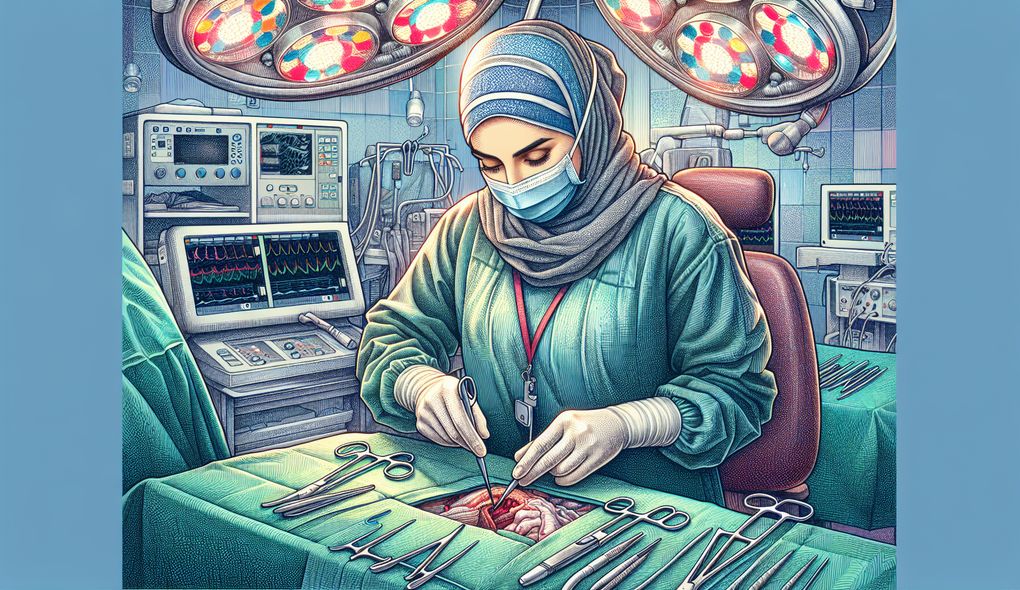How do you approach decision-making and problem-solving in high-pressure situations?
INTERMEDIATE LEVEL

Sample answer to the question:
In high-pressure situations, I approach decision-making and problem-solving by first assessing the urgency and severity of the situation. I prioritize the most critical tasks and gather as much information as possible to make informed decisions. I involve key stakeholders and communicate effectively to ensure everyone is on the same page. I am not afraid to make quick decisions when necessary, but I also take the time to analyze the potential consequences. When problem-solving, I break down the problem into smaller, more manageable parts and focus on finding practical solutions. I also seek input and advice from colleagues who may have valuable perspectives. Overall, I maintain a calm and focused mindset to navigate high-pressure situations with confidence.
Here is a more solid answer:
In high-pressure situations, my approach to decision-making involves prioritizing tasks based on their urgency and impact. I gather all available information and consult with relevant stakeholders to ensure a comprehensive understanding of the situation. I analyze the pros and cons of different options and consider the potential consequences before making a decision. I am not afraid to take calculated risks and make quick decisions when necessary, but I always strive to maintain a rational and logical mindset. When it comes to problem-solving, I break down complex issues into smaller components and tackle them one by one. I focus on finding practical solutions, and I am open to input and advice from colleagues who may offer valuable insights. Additionally, I remain calm and composed under pressure, as I believe that a clear mind leads to better decision-making. Strong communication skills are essential in high-pressure situations, and I make a conscious effort to effectively convey information and collaborate with others to achieve the best possible outcomes.
Why is this a more solid answer?
The solid answer provides more specific details about the candidate's approach to decision-making and problem-solving in high-pressure situations. It includes examples of prioritization, gathering information, consulting stakeholders, analyzing options, and considering consequences. It also mentions the candidate's ability to take calculated risks and remain calm and composed. However, it could be further improved by providing specific examples of past experiences or accomplishments related to high-pressure decision-making and problem-solving. Additionally, it could address the evaluation areas in more depth.
An example of a exceptional answer:
In high-pressure situations, my decision-making approach centers around a structured framework that allows me to navigate complexity with confidence. I begin by assessing the urgency and severity of the situation, identifying the key factors influencing the decision. I then prioritize tasks based on their impact and develop a comprehensive action plan. This involves gathering relevant information from various sources, such as patient records, medical literature, and consultations with colleagues. I ensure effective communication with stakeholders, providing clear and concise updates and seeking input when needed. To enhance problem-solving, I adopt a systematic approach. I break down complex problems into smaller, more manageable components, conduct root cause analysis, and explore various perspectives. I leverage my experience in surgical oncology, drawing on evidence-based practices and innovative techniques to find practical solutions. In high-pressure situations, I remain focused yet adaptable, capable of making sound decisions quickly while considering potential risks and benefits. I understand the importance of strong communication skills, using active listening and clear articulation to build trust and collaboration within the team. Overall, my approach to decision-making and problem-solving in high-pressure situations is characterized by a calm and composed demeanor, a strategic mindset, and a commitment to achieving the best possible outcomes.
Why is this an exceptional answer?
The exceptional answer demonstrates a comprehensive and well-structured approach to decision-making and problem-solving in high-pressure situations. It includes specific details about the candidate's decision-making framework, prioritization methods, information gathering, effective communication, problem-solving strategies, and utilization of surgical oncology expertise. It highlights the candidate's ability to remain focused and adaptable while considering risks and benefits. The answer also emphasizes the importance of strong communication skills and collaboration within the team. Overall, the exceptional answer addresses the evaluation areas in depth and provides a clear understanding of the candidate's capabilities in handling high-pressure situations.
How to prepare for this question:
- 1. Familiarize yourself with common decision-making models and problem-solving frameworks, such as the 5 Whys or SWOT analysis. Understand how they can be applied in high-pressure situations.
- 2. Reflect on past experiences where you had to make critical decisions or solve complex problems under pressure. Prepare specific examples that showcase your abilities in these areas.
- 3. Develop effective communication skills, both oral and written, to convey complex information clearly and collaborate effectively with others.
- 4. Stay up to date with advancements in surgical oncology and evidence-based practices. Continuously invest in your professional development to enhance your decision-making and problem-solving abilities.
- 5. Practice maintaining a calm and composed mindset in high-pressure situations. Utilize stress management techniques and develop strategies to stay focused and rational.
- 6. Seek feedback from mentors or colleagues to further refine your decision-making and problem-solving skills. Embrace opportunities for growth and improvement.
What are interviewers evaluating with this question?
- Decision-making
- Problem-solving
- Ability to work under pressure
- Communication skills

